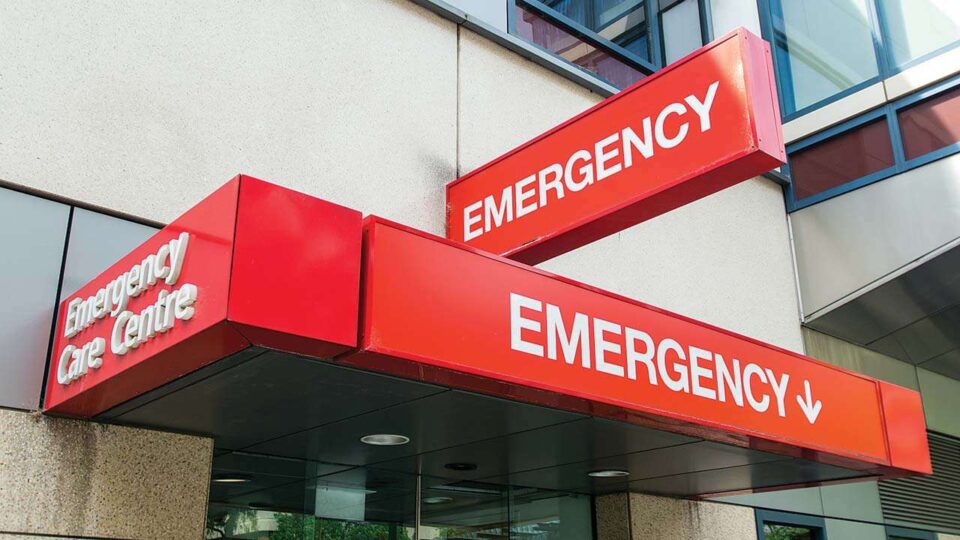Medical emergencies arrive uninvited and unexpectedly. The cost of healthcare is skyrocketing and having financial contingency during emergencies is a must. Compromising on your or your family’s health due to a shortage of funds is not an option. Regardless of financial preparation, you cannot always estimate the total cost of treatment. Even having a health insurance policy does not guarantee 100% coverage for your medical requirements. Sometimes, insurance companies will settle the final claim amount such that it is lower than your total medical bill. You are then left to fend for your remaining monetary payoffs by yourself. Even when availing of cashless treatment, sometimes medical centers insist that you pocket the entire bill and apply for a reimbursement with your insurance company later. This creates a serious monetary liability for you. The best way to get out of it is by applying for a personal loan.
Medical emergency loans in India – things you should know
A medical emergency loan is a type of personal loan, which can be used to cover your financial liabilities related to medical treatment. The below points will help acquaint you with some critical factors related to applying for a medical emergency loan. It will also help to improve your chances of loan approval.
- Simple online application process: When facing a medical emergency, you are short on time. The only thing you don’t need is a complicated, long-winded loan application process. With the advent of online processing, applying for a personal loan for a medical emergency has transformed into a paperless, hassle-free procedure. The lending institution’s website can show your eligibility online. You can also choose your loan amount, payback period, interest rates, etc.
- Quick and easy unsecured loans: Personal loans do not need any security backup for borrowing. This reduces the load of having to provide documentation and evidence. Further, the whole process can be completed online – even the documents you upload through the application portal get verified online. Documents to be provided include:
- Address Proof
- Identification Proof
- Pan and Aadhar Card
- Employment proof
- Income proof and bank statements (for the past three months)
Once you meet the basic eligibility requirements and your loan is approved, it gets transferred to your account within 24 hours.
- Flexible options to repay: Most banks and financial lenders allow borrowers to pay back within 12 to 60 months from the date of borrowing funds. As a borrower, you can choose your payback period and decide your monthly EMI amount based on your monetary resources. Most lenders have EMI calculators on their websites which make it easy to calculate your repayment amount.
- Good CIBIL Score: A personal loan for a medical emergency is a collateral-free, unsecured loan. While this eases the qualification process for the borrower, it increases the lender’s risk. Most lenders refer to your CIBIL records to study your credit score and understand your financial portfolio. Maintaining a CIBIL score of 700 and above makes it easy to qualify and borrow funds. Some lenders might consider granting you an emergency medical loan even with a lower score. But the trade-off for you could involve having to borrow at a higher rate of interest or avail a lower amount of loan.
- Avail funds higher than your current credit card limit: In times of medical emergency, people often turn to their credit cards to make payments. However, credit cards have a limit up to which payments can be made. If your monetary requirement is for a value higher than your credit limit, availing of a personal loan would be wiser. Some lenders will even accommodate higher value loan amounts (in the range of 25 to 40 lakhs) for borrowers in urgent need.
- Ease of payment to your medical center: Some hospitals do not allow patients or their families to pay through credit cards. When you avail of a personal loan for a medical emergency, the funds are available to your bank account. This allows you to either transfer funds, write a cheque or pay the hospital in cash. The funds can also be used to pay for your medicines and other medical supplies you will need to post your discharge from the medical facility.
- Special Offers from Lenders: Some lenders will allow you to withdraw money from your authorized amount while you pay interest only on the amount you use. They allow you to pay EMI’s for interest only, while repaying the principal at the end of your repayment schedule.
Health emergencies are volatile situations. The exact monetary requirements for treatment cannot always be predicted accurately. Therefore, availing a personal loan to cover your expenses is a convenient option during medical emergencies.
